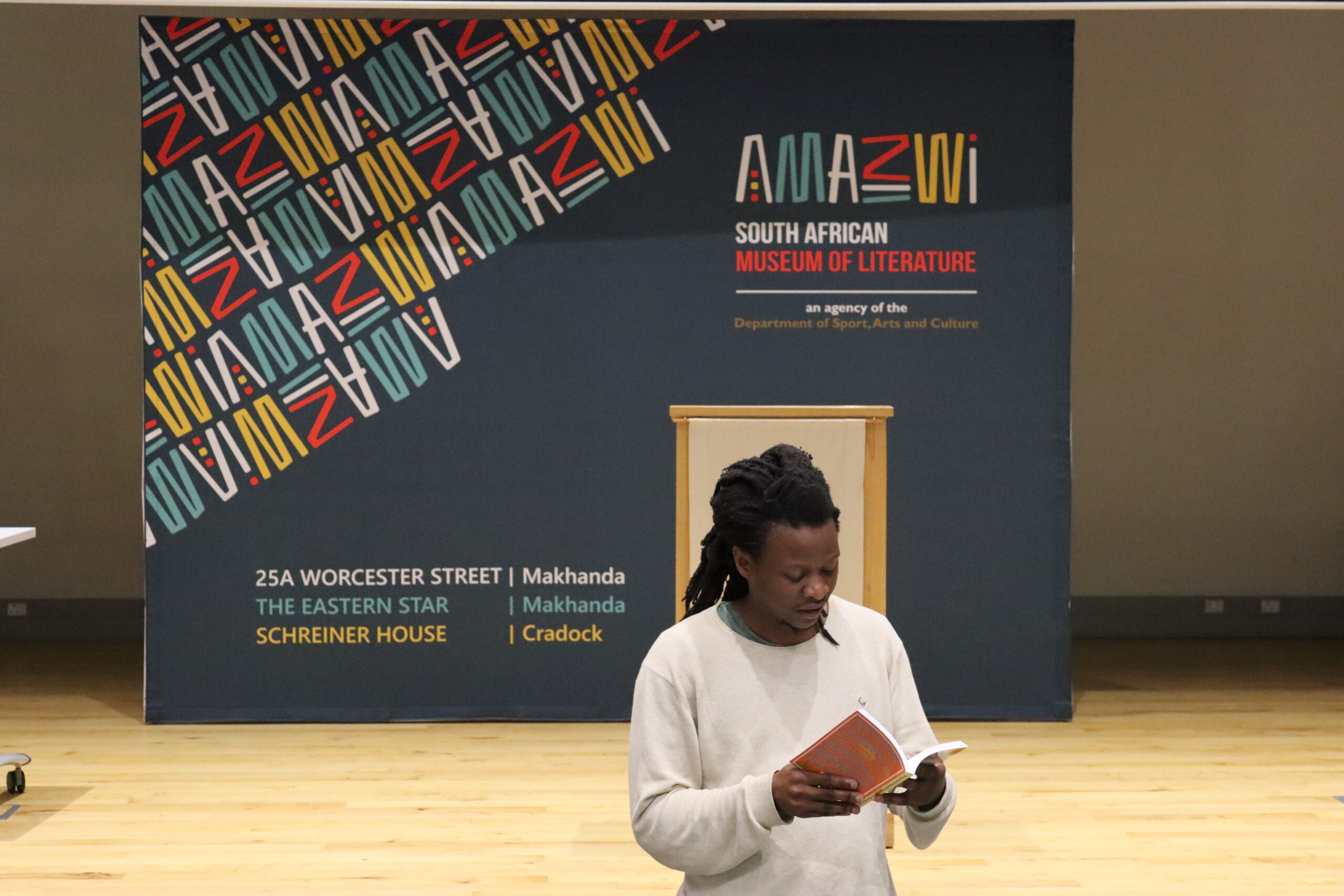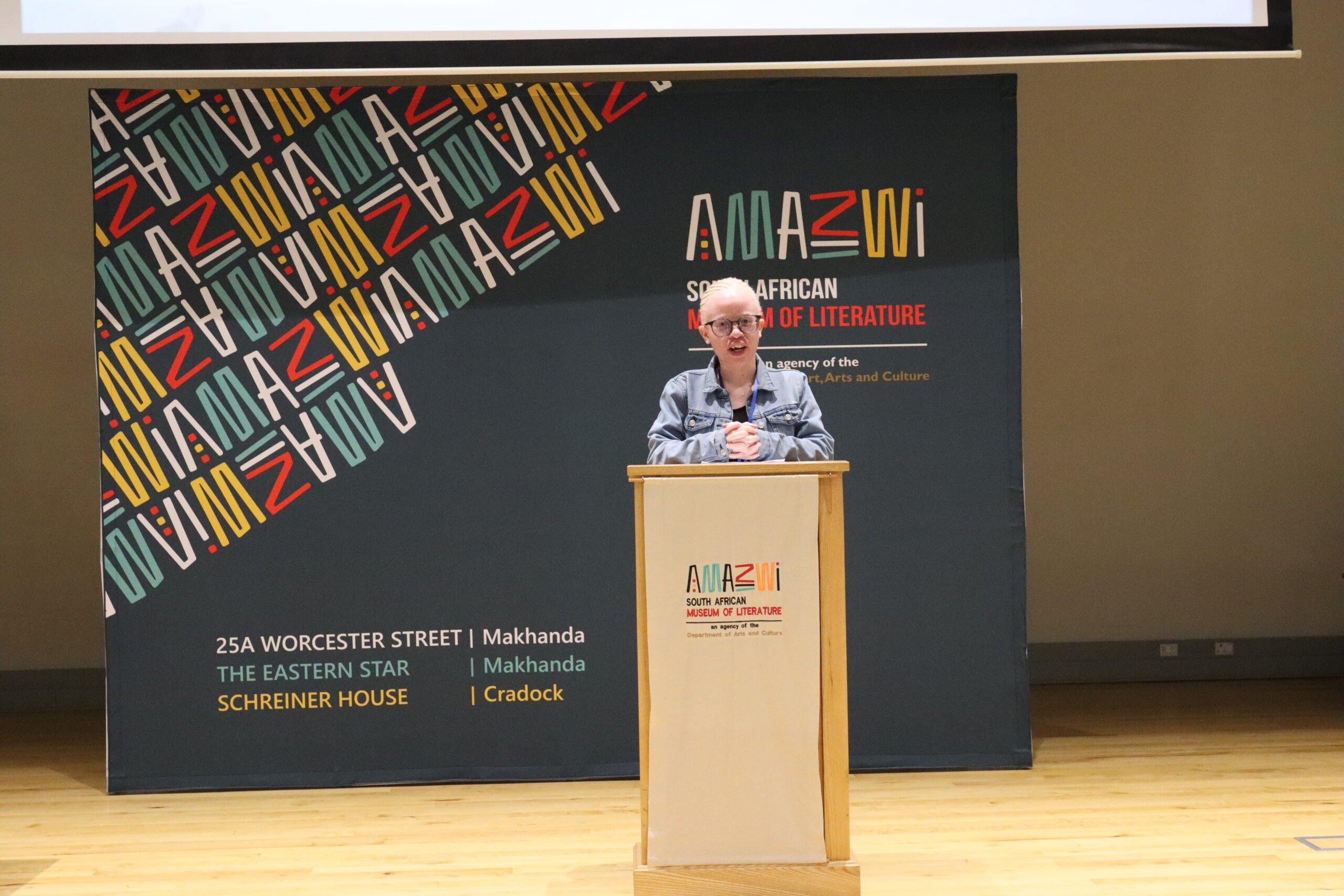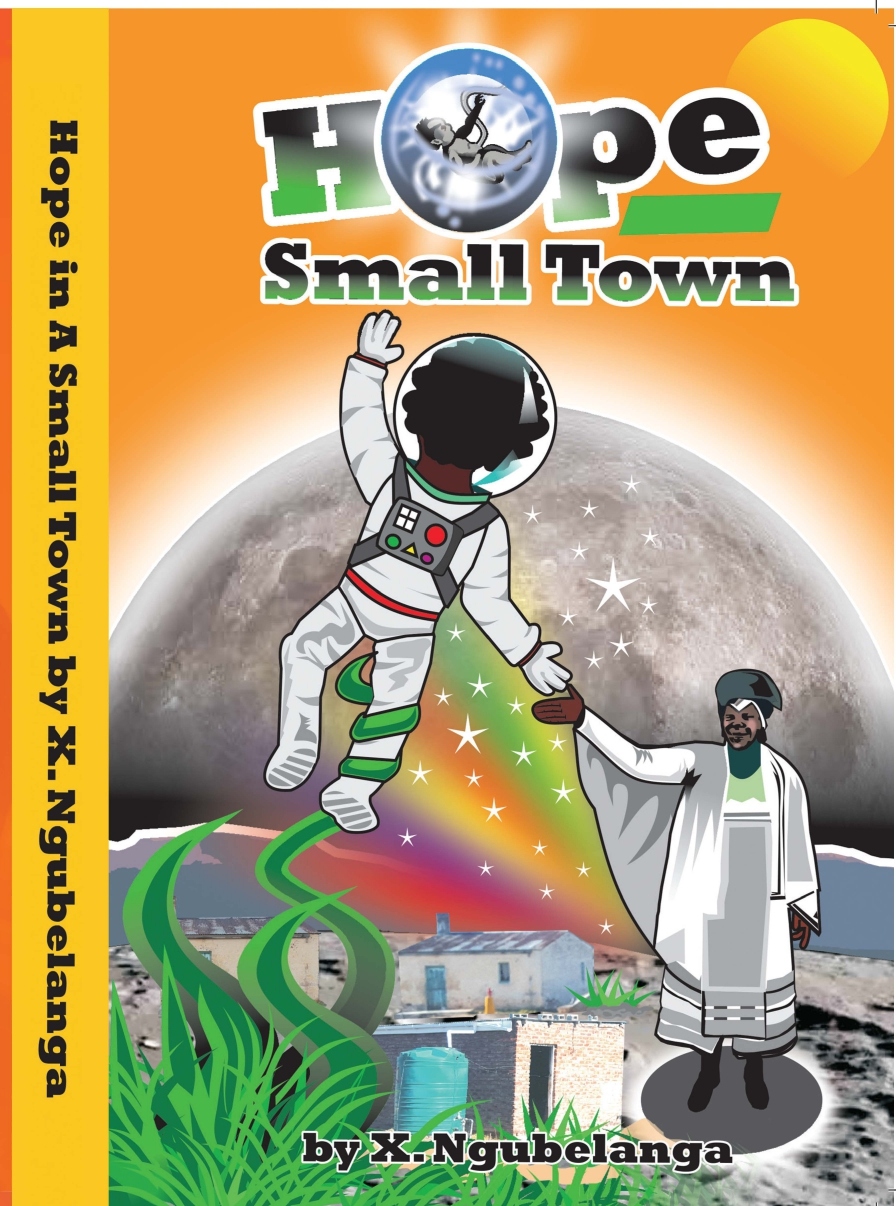By TOTO TSARNEBA
Xolisa Ngubelanga is a writer and theatremaker born in Gqeberha who applies his drama and language skills to his youth developer and facilitator work.
Xolisa’s work at Pearston High School in the Karoo helped improve their matric pass rate within two years from about 45% to 62% in 2019.
Xolisa’s scripts include Flamebook, for which he won the Standard Bank Ovation Award in 2017, Dinner with Bantu, which celebrates Steve Biko’s heritage and Pieces of an African Drum, which poses questions about African identity and the need to make money to survive. He completed his Master’s degree in creative writing at Rhodes University in 2019.

Xolisa launched his novel Hope in A Small Town at Amazwi Museum in Makhanda on 6 October 2022. This fictional memoir was part of the work that Xolisa completed as part of his Master’s.
The novel’s title is inspired by the experiences of the people of Pearston, who share their voices and experiences in the book. Xolisa believes that one can only speculate about the experience of others, but for better or worse, one’s own experience is genuine.
Hope In A Small Town is an excellent example of how Xolisa avails artistic experience to marginalised communities. He uses theatre to bring hope to the ‘hopeless’ Pearston. While creating and writing this fictional memoir, he workshopped plays with the youth of Pearston. This took them away from the streets and brought them into the world of creation and the arts, where they got to imitate their ideal utopian adulthood life in the film titled Uneven Sisters.
Xolisa said when given opportunities, youth use them and forget about drugs, crime and other deviant behaviours that stem from a lack of opportunity. Hope helps them strive to reach for their dreams. Hope In A Small Town is an attempt to embody this ideology in literary form.
Xolisa uses different languages in this fictional memoir to ensure that his novel speaks to the community in a colloquial language they understand and use. Xolisa said this is done to hold a magical mirror that not only reflects an image of the people within dry and dusty Pearston but also reflects people’s innermost aspirations for themselves and their community. “This is to be done by celebrating moments and experiences of people’s lives to eternalise positive memories,” he said.
“My pursuit of the art product ‘novel’ is as a podium and pedestal for all to climb on to reach their dreams,” he said.
Dr Hleze Kunju, the thesis advisor, said he was impressed by how the book is written and the fact that the writer refused to provide translation when there was a request.
The book is based on real lived experience, so the characters’ names are for the people who participated in some of the activities that Xolisa hosted while writing the novel.
“The writing of the novel, though a private affair, was also meant to be inclusive. Everybody within the novel has written a part of it and therefore deserves an accolade on how well or fiercely they are living their lives. Creating art is not different from building a bridge – it is the work of many hands,” he said.
Asemahle Dinge, one of the participants in the novel, said the work was very empowering, and she will never stop praising Xolisa for the experience. “I am still a star and will shine bright despite my circumstances,” she said.



